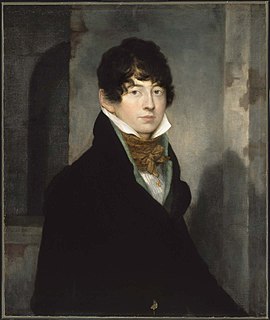A Quote by Thomas B. Macaulay
All the walks of literature are infested with mendicants for fame, who attempt to excite our interest by exhibiting all the distortions of their intellects and stripping the covering from all the putrid sores of their feelings.
Related Quotes
Religion is part of the human make-up. It's also part of our cultural and intellectual history. Religion was our first attempt at literature, the texts, our first attempt at cosmology, making sense of where we are in the universe, our first attempt at health care, believing in faith healing, our first attempt at philosophy.
Vanity, fear, desire, competition - all such distortions within our own egos - condition our vision of those in relation to us. Add to those distortions to our own egos the corresponding distortions in the egos of others, and you see how cloudy the glass must become through which we look at each other.
Literature was not promulgated by a pale and emasculated critical priesthood singing their litanies in empty churches - nor is it a game for the cloistered elect, the tinhorn mendicants of low calorie despair. Literature is as old as speech. It grew out of human need for it, and it has not changed except to become more needed. The skalds, the bards, the writers are not separate and exclusive. From the beginning, their functions, their duties, their responsibilities have been decreed by our species. --speech at the Nobel Banquet at the City Hall in Stockholm, December 10, 1962
A state of things in which a large portion of the most active and inquiring intellects find it advisable to keep the genuine principles and grounds of their convictions within their own breasts, and attempt, in what they address to the public, to fit as much as they can of their own conclusions to premises which they have internally renounced, cannot send forth the open, fearless characters, and logical, consistent intellects who once adorned the thinking world.
What I believe is that we have this extraordinary spirit inside ourselves, which for me is our Buddha nature. I believe we are in the process of opening and getting closer and closer to our Buddha nature and stripping away all that is covering it. I don't think I'm going to end up meeting this one being up there or out there.
. . . the upsurge of Spirit is the only plausible way to stop the ecological destruction of our planet. Even people who have no interest in a communal solution to the distortions in our lives will have to face up [to] this ecological reality. Unless we transform our relationship with nature, we will destroy the preconditions for human life on this planet.































